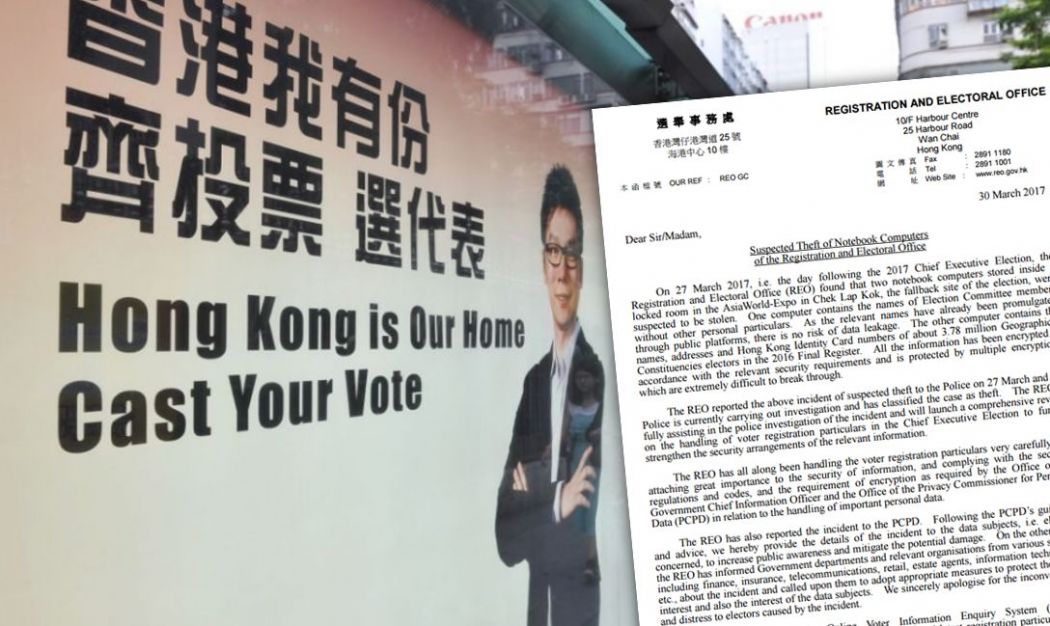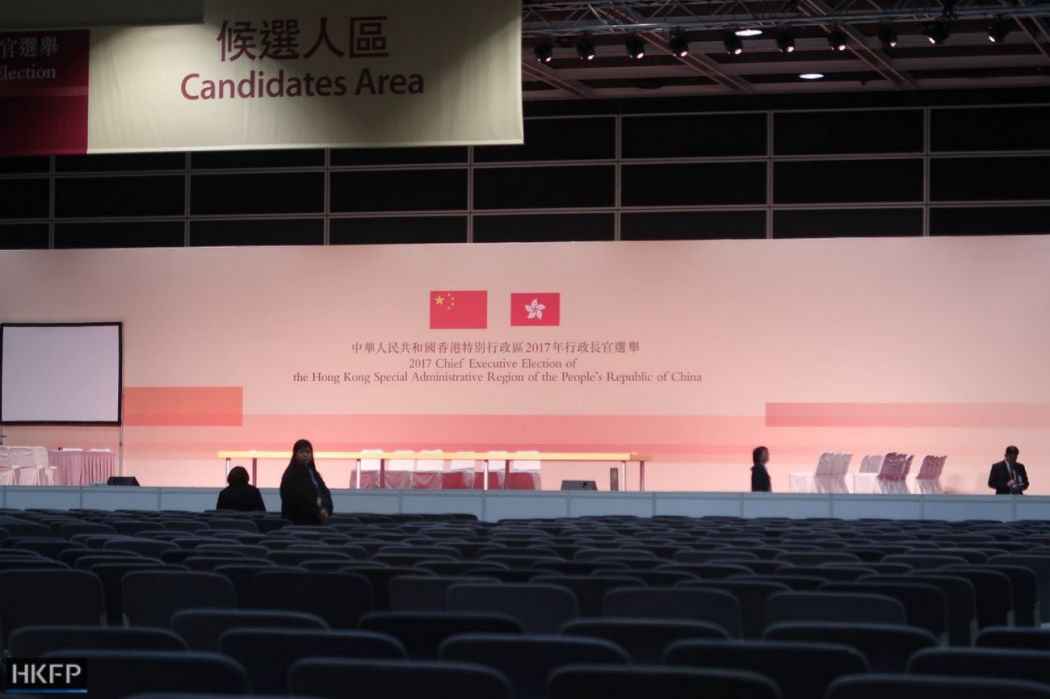I received a letter last week from a Mr. Wong See-man.
I do not know Mr. Wong and he evidently does not know me. The whole letter had been written by a computer including his signature. Mr. Wong is a Chief Electoral Officer, apparently, which means he is a senior official in the Registration and Electoral Office, which as well as more mundane electoral tasks tries to exclude politically undesirable candidates. So I was prepared to be peeved.
This letter, though, was only peripherally about elections – it was a grovelling apology for the inconvenience and distress caused to me (eh?) by the Case of the Lost Laptops.

This goes back to the election, such as it was, of the Chief Executive of the Hong Kong Special Administrative Region, which was held last month. You would think that this was a fairly easy election to organise as there were only 1,200 electors.
However, haunted as organs of our government often are these days by the fear that some sort of protest would keep the electors from the polling station, which was of course in a convenient central spot, the election people decided to pick a “fallback” site. Here electors could cast their ballots while the riot continued round the original venue. The fallback site was well out of the way, in the exhibition centre next to the airport.
During the preparation of this predictably superfluous facility two “notebook computers” were, it seems, left in a locked room at the centre. And when the electoral flunkies went to collect them, they had disappeared. Quelle horreur!
See also: Hong Kong gov’t loses computers with personal data of all registered voters
It transpires that one of the missing microchips contained only the names of the actual electors, which were already public. The other, however, contained the names, addresses and ID card numbers of all Hongkongers – there are nearly 4 million of us – who have registered to vote in the other elections, in which we peasants are graciously allowed to vote.
The electoral office has reported the whole matter to the police, who have, the letter says, classified the case as theft, which I suppose is a start. The letter says the REO “has all along been handling the voter registration particulars very carefully,” which hardly seems to be born out by this incident. It also says the information is vigorously encrypted, password protected, etc.
This is no doubt true, but I suppose a computer is rather like a safe – if you can take it back to the Batcave and take as long as you like you will get into it eventually.

The electoral people also reported the matter to the Office of the Privacy Commissioner for Personal Data. And naturally they followed the office’s advice, which was apparently to provide details of the incident to the data subjects – who include me – and also to inform “government departments and relevant organisations from various sectors about the incident and called upon them to adopt appropriate measures to protect their own interest and also the interests of data subjects.”
And at some point in this interesting dialogue between the election fixers and the privacy freaks, common sense went out the window.
See also: Legislature condemns Electoral Office for negligence over missing election laptops
What is the point, one wonders, of telling government and other agencies about the incident and calling upon them to “adopt appropriate measures.” Is this an attempt to tell people who may not already know this that things left in ordinary locked rooms for a few days may disappear? May “relevant organisations” not feel that the Registration and Electrical Office, in the light of this cock-up, might be better advised to consider its own deficiencies before offering advice to other people?
The only reason offered for all this is that the electors concerned are being told “to increase public awareness and mitigate the potential damage.” I am not clear why the public needs awareness of the dangers of leaving computers loaded with millions of people’s personal information lying about.
And what are we supposed to do to mitigate the damage? There is no point in changing your ID card number, which without the card attached is worthless. Changing your address could be considered rather a drastic approach in these circumstances. I realise that privacy enthusiasts get excited about these things but people’s names and addresses used to be routinely published in a thing called the telephone book. This never did us any serious harm.

What really seems excessive, though, is the idea that the information and apology should be sent in a personal letter to each elector.
The REO spurned even the basic economy to be secured by sending electors living at the same address their copies of the letter in one envelope. Indeed these days the use of an envelope could be considered rather antiquated for a duplicated communication of this kind, which might easily be folded and adorned with an address label.
This exercise has consumed some three and a half million pieces of A4 paper. It has also consumed some three and a half million envelopes. A small forest has been sacrificed somewhere to provide the necessary tree carcasses. And the envelopes were not the free “on Government service” envelopes either. Mine had a chop saying postage had been paid. Nice bit of business for the Post Office.
See also: No one was guarding election computers before they disappeared, chief electoral officer admits
Now look, people, here in the 21st century we have a variety of ways of communicating with the public. These are not infallible but they are perfectly sufficient for a case like this where the interest of the individual recipient in the matter is negligible or non-existent. Actually the whole case was lavishly reported in the usual media. A grovelling apology from the head of the REO would have been reported as well.
Sending out three and a half million individual letters was an egregious waste of money, paper and time. If that was what the Privacy people suggested then the suggestion should have been ignored.
I note also that the letter makes no attempt to answer the one question left hanging about the whole affair, which is why the second laptop was needed at all. The election only concerned the 1,200 members of the election committee. Who thought they would need the names and addresses of the entire voting population, and what for?
And if by any chance you are reading this, Mr. Wong, I do not like being addressed as Dear Sir/Madam.
